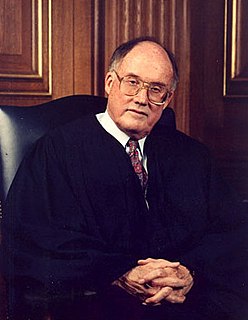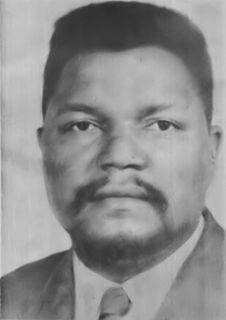A Quote by Ulysses S. Grant
I leave comparisons to history, claiming only that I have acted in every instance from a conscientious desire to do what was right, constitutional, within the law, and for the very best interests of the whole people. Failures have been errors of judgment, not of intent.
Related Quotes
There has been no clearer principle of English or American constitutional law than that, in criminal cases, it is not only the power and duty of juries to judge what are the facts, what is the law, and what is the moral intent of the accused; but that it is also their power, and their primary and paramount duty, to judge the justice of the law, and to hold all laws invalid, that are, in their opinion, unjust or oppressive, and find all persons guiltless in violating, or resisting the execution of, such laws.
They who say that women do not desire the right of suffrage, that they prefer masculine domination to self-government, falsify every page of history, every fact in human experience. It has taken the whole power of the civil and canon law to hold woman in the subordinate position which it is said she willingly accepts.
It is impossible to build sound constitutional doctrine upon a mistaken understanding of Constitutional history... The establishment clause has been expressly freighted with Jefferson's misleading metaphor for nearly forty years... There is simply no historical foundation for the proposition that the framers intended to build a wall of separation... The recent court decisions are in no way based on either the language or intent of the framers.
I do have a fundamental concern about us losing control of our own destiny, and this is not just about the euro. You can expand and extend it into the whole constitutional issue. The British people have been suckered with regard to how the whole currency and constitutional issues have been sold to them.
Every State has a natural right in cases not within the compact (casus non faederis) to nullify of their own authority all assumptions of power by others within their limits. Without this right, they would be under the dominion, absolute and unlimited, of whosoever might exercise this right of judgment for them.
Of all the intellectual faculties, judgment is the last to mature. A child under the age of fifteen should confine its attention either to subjects like mathematics, in which errors of judgment are impossible, or to subjects in which they are not very dangerous, like languages, natural science, history, etc.
Opposition can be useful. Every opposition movement is good and useful if it acts within the law... If there are people who act outside the law, then the state must use legal means to impose law in the interests of the majority. That's the way it's done in the U.S. and that's the way it's done in Russia.
What about your constitutional right to bear arms, you say. I would simply point out that you don’t have to exercise a constitutional right just because you have it. You have the constitutional right to run for president of the United States, but most people have too much sense to insist on exercising it.
I have asserted the right of Negroes to meet the violence of the Ku Klux Klan by armed self-defense — and have acted on it. It has always been an accepted right of Americans, as the history of our Western states proves, that where the law is unable, or unwilling, to enforce order, the citizens can, and must act in self-defense against lawless violence.
In my judgment it is the duty of Congress, while respecting to the uttermost the conscientious convictions and religious scruples of every citizen, to prohibit within its jurisdiction all criminal practices ... Nor can any ecclesiastical organization be safely permitted to usurp in the smallest degree the functions and powers of the National Government.
I shall often go wrong through defect of judgment. When right, I shall often be thought wrong by those whose positions will not command a view of the whole ground. I ask your indulgence for my own errors, which will never be intentional, and your support against the errors of others, who may condemn what they would not if seen in all its parts.






























